• Cerebral Palsy
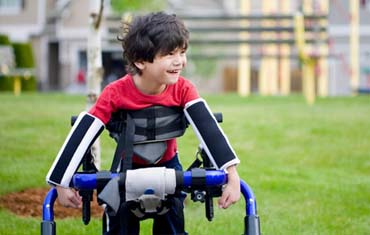
Cerebral palsy (CP) is a group of disorders that affect a person's ability to move and maintain balance and posture. CP is the most common motor disability in childhood. Cerebral means having to do with the brain. Palsy means weakness or problems with using the muscles.
What is the main cause of cerebral palsy? Cerebral palsy is caused by abnormal brain development or damage to the developing brain.
• Mental Retardation

Intellectual disability (ID), once called mental retardation, is characterized by below-average intelligence or mental ability and a lack of skills necessary for day-to-day living. People with intellectual disabilities can and do learn new skills, but they learn them more slowly.
The main symptom is difficulty thinking and understanding. Life skills that can be impacted upon include certain conceptual, social and practical skills.
• ADHD(Attention deficit hyperactivity disorder)

Many children (perhaps as many as half) will outgrow their symptoms but others do not, so ADHD can affect a person into adulthood.
The cause(s) and risk factors for ADHD are unknown, but current research shows that genetics plays an important role. Recent studies link genetic factors with ADHD. In addition to genetics, scientists are studying other possible causes and risk factors including: Brain injury.
• Migraine

A migraine is a headache that can cause severe throbbing pain or a pulsing sensation, usually on one side of the head. It's often accompanied by nausea, vomiting, and extreme sensitivity to light and sound.
The exact cause of migraines is unknown, but they're thought to be the result of abnormal brain activity temporarily affecting nerve signals, chemicals and blood vessels in the brain.
• Stroke

An ischemic stroke occurs when the blood supply to part of the brain is interrupted or reduced, preventing brain tissue from getting oxygen and nutrients. Brain cells begin to die in minutes. A stroke is a medical emergency, and prompt treatment is crucial.
Drinking enough water regularly prevents dehydration. This may play a role in keeping the blood less viscous, which in turn prevents a stroke.
• Alzheimer's Disease
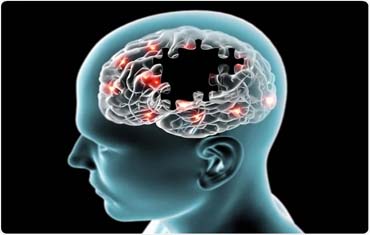
A progressive disease that destroys memory and other important mental functions.
Brain cell connections and the cells themselves degenerate and die, eventually destroying memory and other important mental functions. Memory loss and confusion are the main symptoms. No cure exists, but medication
and management strategies may temporarily improve symptoms.
• Parkinson’s Disease
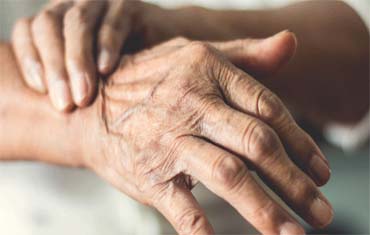
Parkinson's disease is a brain disorder that leads to shaking, stiffness, and difficulty with walking, balance, and coordination. Parkinson's symptoms usually begin gradually and get worse over time. As the disease progresses, people may have difficulty walking and talking.
Parkinson's often starts with a tremor in one hand. Other symptoms are slow movement, stiffness and loss of balance.
• Epilepsy

Epilepsy is a central nervous system (neurological) disorder in which brain activity becomes abnormal, causing seizures or periods of unusual behavior, sensations and sometimes loss of awareness. Anyone can develop epilepsy. Epilepsy affects both males and females of all races, ethnic backgrounds and ages.
There's currently no cure for epilepsy, but it can be managed with medications and other strategies.
• Seizure

A seizure is a sudden, uncontrolled electrical disturbance in the brain. It can cause changes in your behavior, movements or feelings, and in levels of consciousness. Having two or more seizures at least 24 hours apart that aren't brought on by an identifiable cause is generally considered to be epilepsy.
Epilepsy may occur as a result of a genetic disorder or an acquired brain injury, such as a trauma or stroke.
• Sciatica
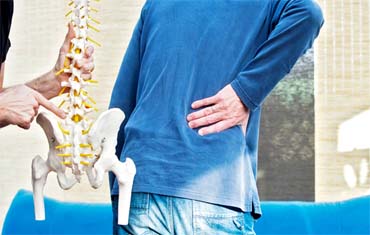
Sciatica refers to pain that radiates along the path of the sciatic nerve, which branches from your lower back through your hips and buttocks and down each leg. Typically, sciatica affects only one side of your body.
Sciatica is where the sciatic nerve, which runs from your lower back to your feet, is irritated or compressed. It usually gets better in 4 to 6 weeks but can last longer.
• Paralysis

Paralysis is the loss of the ability to move some or all of your body. It can have lots of different causes, some of which can be serious. Depending on the cause, it may be temporary or permanent.
Most paralysis is due to strokes or injuries such as spinal cord injury or a broken neck. Other causes of paralysis include: Nerve diseases such as amyotrophic lateral sclerosis. Autoimmune diseases such as Guillain-Barre syndrome.
• Multiple sclerosis

In MS, resulting nerve damage disrupts communication between the brain and the body. Multiple sclerosis causes many different symptoms, including vision loss, pain, fatigue and impaired coordination. The symptoms, severity and duration can vary from person to person. Some people may be symptom free for most of their lives, while others can have severe, chronic symptoms that never go away. Physiotherapy and medication that suppress the immune system can help with symptoms, and slow disease progression.
• Cerebellar ataxia
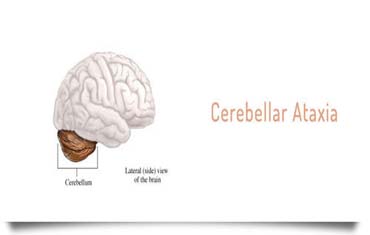
Acute cerebellar ataxia is sudden, uncoordinated muscle movement due to disease or injury to the cerebellum. This is the area in the brain that controls muscle movement. Ataxia means loss of muscle coordination, especially of the hands and legs.
The age of onset and the rate of ataxia progression are perhaps the two most useful clinical features pointing to the cause.
• Trigeminal Neuralgia
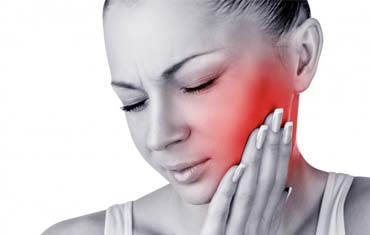
Trigeminal neuralgia is a condition that causes painful sensations similar to an electric shock on one side of the face. This chronic pain condition affects the trigeminal nerve, which carries sensation from your face to your brain.
The trigeminal nerve carries sensation from the face to the brain. It's most common in women aged over 50.
• Autism

Autism spectrum disorder (ASD), or autism, is a broad term used to describe a group of neurodevelopmental conditions. These conditions are characterized by differences in communication and social interaction. People with ASD often demonstrate restricted and repetitive interests or patterns of behavior.
A serious developmental disorder that impairs the ability to communicate and interact.
• Bell's palsy

Bell's palsy is a condition that causes a temporary weakness or paralysis of the muscles in the face. It can occur when the nerve that controls your facial muscles becomes inflamed, swollen, or compressed. The condition causes one side of your face to droop or become stiff.
Bell's palsy may be a reaction to a viral infection. It rarely occurs more than once.
• Facial Palsy

The term facial palsy generally refers to weakness of the facial muscles, mainly resulting from temporary or permanent damage to the facial nerve. When a facial nerve is either non-functioning or missing, the muscles in the face do not receive the necessary signals in order to function properly.
Sudden weakness in the muscles on one half of the face.
• Diabetic Neuropathy
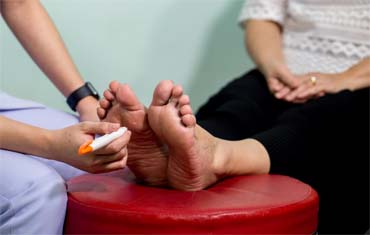
Diabetic neuropathy is a type of nerve damage that can occur if you have diabetes. High blood sugar (glucose) can injure nerves throughout your body. Diabetic neuropathy most often damages nerves in your legs and feet.
A type of nerve damage that can occur with diabetes.
• Meningitis

Inflammation of brain and spinal cord membranes, typically caused by an infection.
Meningitis is usually caused by a viral infection but can also be bacterial or fungal. Vaccines can prevent some forms of meningitis.
Symptoms include headache, fever and stiff neck. Depending on the cause, meningitis may get better on its own or it can be life-threatening, requiring urgent antibiotic treatment.
